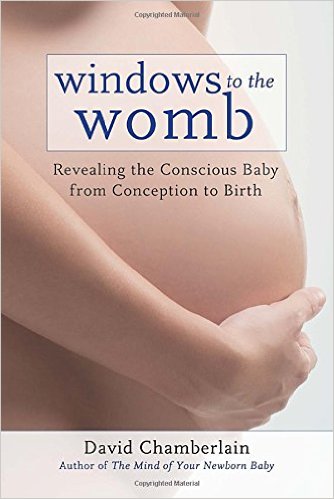How should Christians think about regulations and limits?
It’s a topic that needs addressing more than ever on this Earth Day, especially when President Trump plans slash environmental regulations and gut the Environmental Protection Agency. But if we’re candid, we must admit that Christians have long had blind spots the size of Texas when it comes to thinking about limits and regulations on our treatment of Creation and protecting the vulnerable in general. Too often Christians have come close to worshipping freedom more than we worship God, except when we’ve called for severe resrictions on a few highly emotional and very tangible matters like abortion and homosexuality.
I’ll start this brief (by my standards!) meditation by calling your attention to the story of Adam and Eve.
In Genesis 2:15 we read the story of God telling Adam and Eve that they are free to eat the fruit of any tree in the garden with the exception of the tree of the knowledge of good and evil.
This was an environmental regulation. This was a limit on the use of Creation, It was a limit to protect Adam and Eve, and, because of their charge to rule God’s world, the limit also served as protection for Creation.
As you read on, we find in Genesis 3:6 that Eve was particularly tempted by the fruit’s appearance that promised culinary pleasure and by the wisdom that she would gain by consuming it. There, in a nutshell, are the two factors that drove the Fall as Christians understand it and what continue to tempt people today.
Our appetites. Our desire for power.
Today’s technologically-amped, Internet-saturated, self-gratification-focused, sacrifice-allergic, corporate-dominated world provides more options to act more impulsively on our appetites and desire for power than has ever been seen history.
This, in turn, makes the question of freedom for individuals and institutions an ever more challenging one.
If we’re honest, we’ll admit that we are as tempted by our appetites and desire for power as Adam and Eve were. Limits are needed to prevent all of us, in our worst moments, from ignoring what is good for ourselves, our neighbors, and God’s earth.
Efforts to remove all limitations and permit everything ignore what the Christians call the Fall and Original Sin. Ironically, the design of the United States constitution is based in large part on an awareness that people will be drawn towards selfishness and acting on their worst passions. Its designers wanted to do two things – provide some idea of where the dividing lines between state powers and the federal government’s powers were (orderliness includes limits) and to frustrate the ability of majorities of people to easily use the tools of government to harm the interests of people outside of the majority. Checks and balances exist to contain and frustrate sinful people from doing the worst that they can do.
Balancing freedom with limits on the use of power is a very Christian approach.
That balance is seen, for example, in regulations God gives to the people of Israel for how they will live in the Promised Land. Consider Exodus 23:10-11. It reads, “For six years you are to sow your fields and harvest the crops, but during the seventh year let the land lie unplowed and unused. Then the poor among your people may get food from it, and the wild animals may eat what is left. Do the same with your vineyard and your olive grove.”
This forced fallowing would have limited the freedom of a landowner to maximize profit from a piece of land but it would have benefited the poor and local wildlife while also allowing the soil itself to renew itself.
Notice, too, how in a way similar to the description of the Fall the interests of God, people, and Creation are interlinked. This is common throughout the Bible. You cannot love God nor your neighbor if you trash God’s earth.
So pay attention to the words leaders use when they speak of rules and regulations and limits. Ask these questions:
What values do advocates for reducing or eliminating regulations directly or indirectly appeal to in their rhetoric? Is it love for God and love for our neighbors? Or is it freedom for the powerful to pursue their appetites and power in ways harmful to the the vulnerable and the commonwealth?
Do the advocates for eliminating regulations accept one of the fundamental elements of the Bible – the Fall and our continued tendency to do wrong, individually and collectively? If they don’t, you have an approach to life and policy that is not Christian in its fundamentals.
Is the push for reduced regulations driven by corporations or people representing the interests of corporations? What complicates matters in thinking about limits and regulations today is the increasing complexity of our world and the dominating role that corporations play. Because corporations are increasingly seen as the vehicles for meeting our personal appetites and desires for power, we are tempted more than ever to give them as much power and freedom as possible.
And, like bacteria that adjust their environment to make conditions more conducive for their existence and less conducive for others, corporations strive to manipulate the regulatory environment to allow them to prosper as much as possible. The more powerful corporations get the more they either seek complete freedom or, perhaps worse, shape our legal frameworks in ways that work for their benefit.
Are those advocating and supporting the elimination of limits in the economic realm equally open to the elimination of limits in other areas of life?
The poster child for someone who called a spade a spade and then was slapped down is Tomi Lahren. This young conservative social media sensation said earlier this month:
“I am someone that’s for limited government. And so I can’t sit here and be a hypocrite and say I’m for limited government but I think that the government should decide what women do with their bodies. I can sit here and say that, as a Republican, and I can say, you know what, I’m for limited government, so stay out of my guns, and you can stay out of my body as well.”
The blowback from conservatives was fierce, and she was fired from Glen Beck’s Blaze TV network. They accused her of being shallow in her conservatism. But, in fact, she was only saying aloud what a radical devotion to freedom in other areas of life would naturally lead you to conclude about abortion – limits on it restrict one’s freedom and do so in an area most intimate to a woman’s life.
It is fundamentally hypocritical for Christians to advocate for strict limits on the application of power against vulnerable life in one area and to go along with the wholesale elimination of limits on the use of power against vulnerable life in other areas.
For example, this article highlights that testing in 2005 and 2006 found that the average baby just out of the womb had an average of 200 industrial chemicals in its blood. Scientists at one point had thought the placenta shielded developing babies in the womb but this is now clearly not the case. And a young, developing infant is more vulnerable to harm from these chemicals than an adult. Where are the Christians fighting to protect the unborn from a chemical onslaught? Did you know that only a small minority of the industrial chemicals being used today have been tested for their safety because of the laxness of the Toxic Substances Control Act? Logic would dictate that Christians calling for limits on abortion should also seek out limits on what the unborn (and the rest of Creation) are exposed to.
Are the regulations and limits in question overdone and crushing goodness and creativity? Fallen people running governments are also tempted, sometimes even out of good motivations, to extend the power of government too far and too oppressively. Business influence can also shape the framework of laws and limits so that they favor the interests of large-scale industry.
It’s time for Christians to be coherent in what we believe so that how we act in society is also coherent. All of life is filled with meaning by God. God is on the side of the vulnerable even as our creativity also comes from God. We need to recognize how strongly our appetites and our desire for power tempt us. We should not only accept balances between limits and freedom where they are needed to protect all that God values, especially the vulnerable, but also advocate for that balance.
We should, like the Psalmist in Psalm 119:97, recognize our fallenness and welcome limits that guide our energies in right ways:
“Oh, how I love your law! I meditate on it all day long.”








